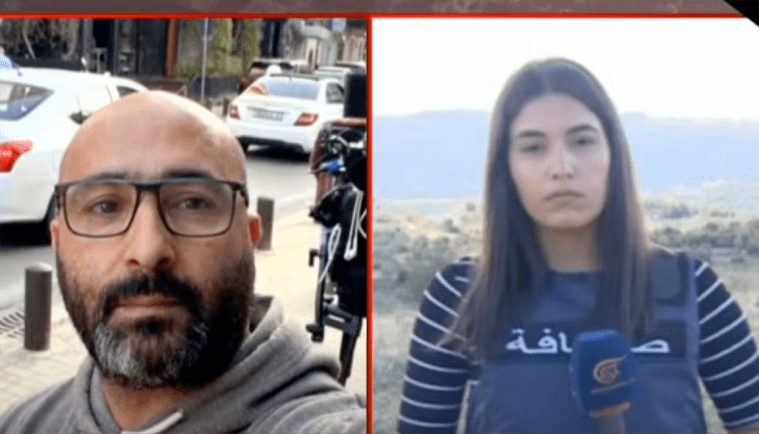Beirut, November 21, 2023 — CPJ is deeply saddened by the killing of Al-Mayadeen TV crew in southern Lebanon on Tuesday, and reiterates its call for the protection of media workers tirelessly covering – at exponentially heightened risk – the ongoing conflict between Israel and multiple parties.
On November 21, correspondent Farah Omar and videographer Rabih Al Maamari, Lebanese journalists of the Lebanon-based broadcaster Al-Mayadeen TV, were killed by an Israeli strike on Tayr Harfa, south Lebanon, according to Al-Mayadeen, the Beirut-based press freedom group SKeyes, and multiple news reports.
They were covering back-and-forth fire on the Tayr Harfa/Al-Jebin triangle in southern Lebanon between Israeli forces and Lebanon’s militant Hezbollah group, these sources said. Al-Mayadeen is Hezbollah-affiliated.
Omar, born in 1998, and Al Maamari, born in 1979, were live on air giving an update from Tayr Harfa, about a mile from the Israeli border, just before they were hit.
“We are deeply saddened by the killing of Farah Omar and Rabih Al Maamari from Al-Mayadeen. Once again, journalists pay their lives as a price to cover the news in this war,” said Sherif Mansour, CPJ’s Middle East and North Africa program coordinator. “We call for an independent investigation into the killing of journalists, and emphasize that journalists are civilians doing important work during times of crisis and must not be targeted by warring parties.”
Al-Mayadeen said in a statement that it believes its journalists were deliberately targeted because of its pro-Palestinian views. Ghassan Bin Jiddo, the channel’s director, said live on air that it will pursue an investigation, adding that “Israel by this is sending a message to Al-Mayadeen after deciding to close it in Occupied Palestine.”
On November 12, Israel’s security cabinet approved a decision to shut down Al-Mayadeen TV in Israel. This move aligns with emergency regulations passed last month, enabling the government to close foreign news outlets deemed to be harming national security, as reported by The Jerusalem Post and The Times of Israel.
Lebanese Prime Minister Najib Mikati alleged in a statement that the strike was an Israeli attempt to silence the media.
Deliberately targeting journalists constitutes a war crime. International humanitarian law gives journalists the same protection as civilians.
Since October 7, the Committee to Protect Journalists has documented dozens of journalists killed, most of them Palestinian. Three have been killed in Lebanon, as tensions escalate between Israel and Hezbollah.
On October 13, Reuters videographer Issam Abdallah was killed by missile fire coming from the direction of Israel in Alma Al-Shaab in southern Lebanon. The strike also wounded two AFP journalists and crew of the Qatar-based broadcaster Al-Jazeera.
On November 13, an Al-Jazeera photographer was “lightly wounded as a result of Israeli bombing” in the border town of Yarun, the Qatari broadcaster said, alleging that media outlets were directly targeted as they toured the area to inspect damage from previous cross-border fire.
CPJ sought comment from the North America desk of the Israel Defense Forces, but did not receive an immediate response.
